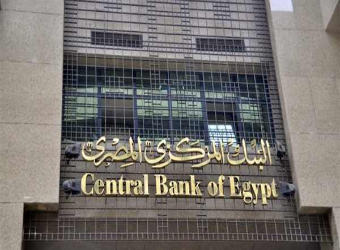Egypt’s central bank will leave its key interest rates unchanged in May for the fifth consecutive time even though annual inflation has jumped to its highest in more than three decades, according to Reuters poll.
The central bank last changed rates in November, when it hiked them by 3 percent after floating the pound currency.
Thirteen out of 14 respondents polled by Reuters expected the central bank to hold the overnight deposit rate at 14.75 percent and the overnight lending rate at 15.75 percent at its monetary policy meeting on Sunday. One economist predicted a 50 basis point hike.
“There is no need to change interest rates given that monthly inflation indicates the impact of the foreign exchange and energy shocks has dissipated, and with a weak monetary policy transmission mechanism a rise in interest rates would not curb inflation,” Arqaam Capital economist Reham El-Desouki said.
Annual urban consumer inflation jumped to 31.5 percent in April but monthly inflation eased to 1.7 percent, suggesting the worst of the price rises has passed.
Import-dependent Egypt has seen inflation soar since the currency was floated in November and then roughly halved in value. The Egyptian pound has stabilised at around 18 per dollar over the past few weeks.
The pound’s flotation is part of economic reforms that helped Egypt secure a $12 billion three-year loan deal with the International Monetary Fund in November. Other reforms include energy price hikes and a new value-added tax (VAT).
Economists said any future rate cut would happen only after inflation falls, probably when further energy price hikes and other economic policy changes have been worked through.
“We expect a rate cut when monthly inflation falls to normal levels following our expectation of another energy price hike in the summer and other fiscal reforms,” El-Desouki said.
President Abdel Fattah al-Sisi is under increasing pressure to revive the economy, keep prices under control and create jobs to avoid a backlash from the public.
IMF mission chief for Egypt Chris Jarvis said in January the fund expects inflation to begin dropping sharply by the second quarter of 2017. 
Source: Reuters
